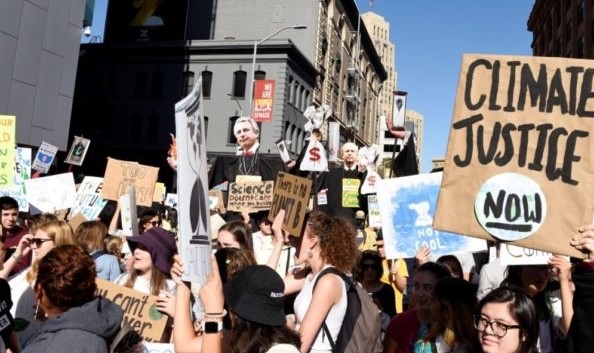No fewer than 90 big companies in sectors from food to cement to telecommunications have pledged to slash their greenhouse gas emissions in a new campaign to steer multi-nationals towards a low-carbon future.

“We Mean Business”, a coalition of advocacy groups, said on Sunday, September 22, 2019 that dozens of companies had joined the initiative in the two months leading up to a United Nations climate summit.
The summit takes place on Monday, September 23, and is aimed to spur faster action on climate change.
“Now we need many more companies to join the movement, sending a clear signal that markets are shifting,” U.N. Secretary-General Antonio Guterres said in a statement.
The coalition was launched in June with a call to action by the United Nations, business and civil society leaders.
We Mean Business said 87 companies are now involved, with total market capitalisation of more than $2.3 trillion.
Some companies in the coalition have agreed to slash their carbon emissions to net zero by 2050.
They include Swiss food company Nestle, French building materials company Saint-Gobain, and French cosmetics maker L’Oreal.
Others have stopped short of committing to go carbon neutral but say they would align their operations with a goal of limiting the increase in average global temperatures to 1.5 degrees Celsius as enshrined in the 2015 Paris Agreement.
This group included Finnish telecoms company Nokia, French food group Danone and British drug maker AstraZeneca Plc, We Mean Business said.
As accelerating climate impacts from melting ice caps to sea-level rise and extreme weather outpace climate models, scientists say the world needs to halve its greenhouse gas emissions over the next decade to avoid catastrophic warming.
With fossil fuel companies still developing new oil and gas fields and many developing countries expanding coal-fired power, the coalition’s pledges are minuscule relative to rising global emissions.
Some experts have questioned whether publicly traded companies committed to maximising shareholder returns would be able to make the sweeping investments required to fight climate change.
Yet many investors have been pressuring companies to act on climate risks, and chief executives also faced pressure from an upsurge in youth-led activism, which mobilised millions around the world to protest on Friday.
We Mean Business believe pledges by a core of mostly European, and some North American and Asian companies, to commit to independently-verified emissions targets would prompt others to follow suit.
“These bold companies are leading the way towards a positive tipping point where 1.5°C-aligned corporate strategies are the new normal for businesses and their supply chains around the world,” said Lise Kingo, chief executive of the U.N. Global Compact, which promotes responsible business practices.
U.N. chief Guterres sees the private sector as crucial to securing more ambitious pledges at Monday’s Climate Action Summit in New York, which aimed to boost the Paris deal before it enters a crucial implementation phase next year. Companies such as Danish power group Orsted, Spanish energy company Iberdrola and German insurer Allianz are due to speak alongside governments at the one-day gathering, according to a draft agenda.
